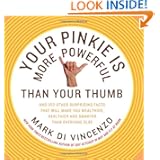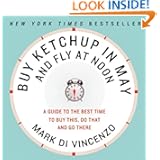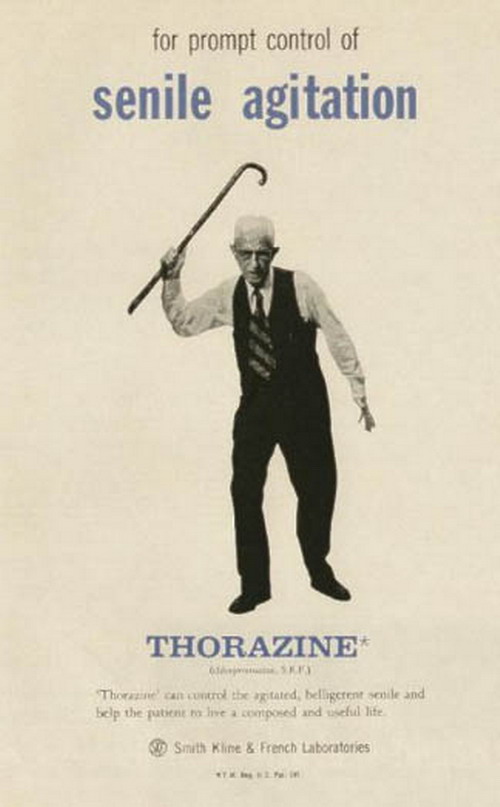R Anyone reading The Novel Road regularly may have noticed that I have certain opinions when the subject of Literary Agents arises. I have had some of the best agents in the publishing business as guests and they all have one thing in common: Their clients LOVE them! These agents engender loyalty from both successful and debut authors. They are passionate about their clients and their work.
Anyone reading The Novel Road regularly may have noticed that I have certain opinions when the subject of Literary Agents arises. I have had some of the best agents in the publishing business as guests and they all have one thing in common: Their clients LOVE them! These agents engender loyalty from both successful and debut authors. They are passionate about their clients and their work.
 Anyone reading The Novel Road regularly may have noticed that I have certain opinions when the subject of Literary Agents arises. I have had some of the best agents in the publishing business as guests and they all have one thing in common: Their clients LOVE them! These agents engender loyalty from both successful and debut authors. They are passionate about their clients and their work.
Anyone reading The Novel Road regularly may have noticed that I have certain opinions when the subject of Literary Agents arises. I have had some of the best agents in the publishing business as guests and they all have one thing in common: Their clients LOVE them! These agents engender loyalty from both successful and debut authors. They are passionate about their clients and their work. My guest today easily makes my list of “Great Agents”, gaining a +++++ score in virtually every category of what to look for in an agent.
Looking for an agent? Put Michelle Wolfson’s name very, very high on your list of who to pray will be representing you. Don’t believe me? Pop over to Tawna Fenske’s site and ask her (remind her for me that August 2nd is just around the corner).
An author should look at a number of things when they start searching for an agent. Their client’s opinions (once you know the agent actually represents your genre) is the absolute benchmark, the Holy Grail on which to base your decision. Clients like agents that sell, return phone calls and work with you - not just for you.
In this – Advantage Michelle
Here is a bit about my guest from her website:
 “Michelle Wolfson formed Wolfson Literary Agency in 2007 and is actively seeking authors of commercial fiction in the following categories: mainstream, mysteries, thrillers, suspense, chick-lit, romance, women’s fiction, and young adult. She is drawn to well written material with strong interesting characters. She is also interested in practical and narrative non-fiction projects, particularly those of interest to women.”
“Michelle Wolfson formed Wolfson Literary Agency in 2007 and is actively seeking authors of commercial fiction in the following categories: mainstream, mysteries, thrillers, suspense, chick-lit, romance, women’s fiction, and young adult. She is drawn to well written material with strong interesting characters. She is also interested in practical and narrative non-fiction projects, particularly those of interest to women.”“Michelle holds a BA from Dartmouth College and an MBA from New York University. Prior to forming her own agency, Michelle spent two years with Artists & Artisans, Inc. and two years with Ralph Vicinanza, Ltd. Before that, she spent several years working outside of publishing, in non-profit and then finance, and she brings the skills she learned there plus a lifetime love of reading to the table as an agent.”
I’m pleased to welcome Literary Agent Michelle Wolfson to The Novel Road…
 |
| Michelle Wolfson |
Me: The Wolfson Literary Agency has a purposely small list of authors and is garnering a reputation for picking winners. Everything from non-fiction to romance. What is it that gets your attention?
Michelle: I definitely think of myself as someone who falls in love with voice first and foremost. That’s what stands out and makes me really fall in love with a book. Although I really love a story that I just can’t put down, so maybe a great plot too. Yes, definitely I’m looking for a gripping plot. You know, the kind where I want to go to sleep at night but I keep telling myself one more chapter and the next thing I know it’s 3:30 in the morning. But I finished it! Although maybe it was the characters. I guess you could say it’s the characters that get my attention. The kind of characters whose stories I don’t want to end. The kind where I’m emailing the authors at 3:31 in the morning saying there’s a sequel, right?? Please, tell me there’s a sequel! That was a clear answer to your question, right?
With non-fiction, I think it’s a little different. I am not a big non-fiction reader myself so I approach these a little differently, trying to assess the market for the topic, comparing it to what’s out there, and of course, how big the author’s platform is. And finally, is it a topic I find interesting. Even in non-fiction, I’m really only interested in representing books that I really love.
Michelle: That book is really incredible, isn’t it? I feel so proud to have worked with Tchicaya and Travis on that one. Travis was actually my client first for his fiction, and my relationship with Travis actually could answer so many of your questions in this interview it’s crazy. He’s unbelievably talented and you’ll be hearing from him someday on the fiction front.
In any case, as often happens with agents and authors, someone said to Travis, I have a friend you should meet—he’s got a great story to tell. And so Travis met Tchicaya and spent the first of countless hours with him hearing some of Tchicaya’s horrifying and awe-inspiring tales. Travis wrote about 40 pages after that meeting and sent them to me and I was hooked. About two months later I was in California and I met with them in person, and once you meet Tchicaya, you’re pretty much in it for the long haul.
They were meticulous in their work; Tchicaya basically told Travis his entire life story in interviews and then Travis wrote it and Tchicaya would help clarify details. It was really an incredible process to watch.
Tchicaya makes people feel proud to be American. He makes people appreciate what they have and not take anything for granted. Tchicaya may have been born in the Congo, but in my mind, he’s the very embodiment of the American Dream.
Me: What genres do you feel will be selling in 2011 and beyond?
Michelle: Most definitely the ones that people buy.
 Me: Is it true that if someone sends a case of Starburst or Tootsie Rolls with their query letter you request a full manuscript?
Me: Is it true that if someone sends a case of Starburst or Tootsie Rolls with their query letter you request a full manuscript?Michelle: Now that is absolutely not true. You would definitely have to pick out all the yellow Starburst for that.
Me: Your in-house gang, “The Wolf Pack” was recently seen picking on the “Team Team” of Janet Reid. In fact your gang made Sean Ferrell cry, Jeff Somers leave his pants at the scene, Dan Krokos ran home to Cleveland and left Gary Corby chanting “Kri-kee”. Any comment?
Michelle: Are you sure they weren’t crying because you’re referring to them as the “Team Team”?
Me: As a literary agent, you look for what you are passionate about, as well as what will sell. Has there been a time when you found a book you loved, but knew it wouldn’t sell?
Michelle: I don’t think there has been a book that I loved and knew wouldn’t sell. I have had a couple that I’ve absolutely loved that didn’t sell where I really just didn’t understand why. The kind where there was brilliance there and people were seeing it but there was something else going on. Those are the ones that kill me. And break my heart. Man, this is kind of a depressing interview. Can we go back to the “Team Team”? Shouldn’t we be picking on them or something?
Michelle: So when Travis Sentell, co-author of In the Shadow of Freedom: A Heroic Journey to Liberation, Manhood, and America first sent a query to me (yes, he too was plucked from the slush), he copied and pasted a freelance editor’s letter at the bottom of the query. Naturally, the editor gushed about how brilliant Travis’s work was etc. And of course I’d never heard of this editor. So when I responded to request pages, I said something along the lines of, “Well, if Mr. XYZ says I’ll love it, then I’m sure I will. Why don’t you email the first 50 pages.” We still joke about it to this day. To me, it feels almost as random as having your mom or your best friend give a reference. Maybe slightly more professional, but bottom line, it doesn’t really matter to me what this stranger thinks. You do your work before you send it to me and then I trust my own taste.
If you feel you need an editor before querying, hire one. If not, then don’t. But certainly I wouldn’t do it with the idea that you are impressing an agent.
FYI, Mr. XYZ’s name became something of a joke between me and Travis, so the day eventually came when I received another query telling me—you guessed it—my manuscript has been professionally edited by Mr. XYZ. Despite the fact that the topic was only of marginal interest to me, I felt I had to request pages. A silent homage to Mr. XYZ. Alas, I passed on the manuscript.
I’m not exactly sure what the moral is here. But maybe you can draw some grand conclusions from it. I don’t know that big name, freelance editors (if any exist) contribute much to your query. Ultimately I’m going to make my own decision. I think plenty of people get a lot out of critique groups and other forums. But that’s a personal decision.
Why are we talking about such a personal topic? Let’s move on already.

Me: How high on your list is narrative voice and narrative distance when you are considering a manuscript? The importance of each?
Michelle: Narrative voice is incredibly important to me. If I’m not taken with the voice, I can’t fall in love with the manuscript. Although I would describe myself as having commercial taste, which I think means I love a good plot, without the great voice to carry it, I don’t think it really has a chance of standing out.
Narrative distance is sort of like POV in my mind. Anything goes and I don’t necessarily notice unless I think it’s done poorly. I want to get caught up in the story and maybe (maybe), think about these things later. I want it to be so well done that I didn’t even realize you were doing it, whatever it is. Go ahead, manipulate my thoughts, manipulate my emotions, just do it well.
Me: I send you a 150,000-word manuscript. It’s a mess, the title is even misspelled , but you read the first page and it catches your interest. Do you send it back with a note explaining, “Spell Check”, margins and sentence fragments, or do you keep it? What state do you like to see a manuscript in before you work on it?
Michelle: So I once took on a client whose manuscript was a whopping 175,000 words. But nothing else really applied and it was a work of brilliance and one of my most devastating non-sales ever.
But I was also much younger then.
 I don’t want to be the one to tell you here that your manuscript isn’t the exception and you can’t have it be 1,000 pages, and have you shout at me well ABC was a huge success and look how long that was. And also 345 agents rejected that. Those kind of discussions exhaust me, quite frankly. If you think you have that exception, I say more power to you. And if you can write a coherent enough query to hook me in a paragraph or two, then fabulous.
I don’t want to be the one to tell you here that your manuscript isn’t the exception and you can’t have it be 1,000 pages, and have you shout at me well ABC was a huge success and look how long that was. And also 345 agents rejected that. Those kind of discussions exhaust me, quite frankly. If you think you have that exception, I say more power to you. And if you can write a coherent enough query to hook me in a paragraph or two, then fabulous. Guidelines are just that—guidelines. Same goes for generalizations. But most of the time I find that when a manuscript is way too long, it’s not because it just had to be that long to tell the story; it’s because there wasn’t enough editing.
As for whether it can be a mess and I can mold it into brilliance—well, once again, I’ve seen it done. I’ve heard of it being done. I’ve even worked with agents who have done it. But I’m probably not your gal.
Me: Do you have a character, from a manuscript you have taken on, that has left a mark on you?
Michelle: I don’t know if this is cheating, but I will say that Tchicaya Missamou’s story in IN THE SHADOW OF FREEDOM, not to mention meeting and working with him in real life, has made a lasting impression on me. I am not even talking about the horrors he witnessed as a child soldier in the Congo, but rather Tchicaya’s unbelievable perseverance. Tchicaya has steamrolled through obstacles his entire life to achieve incredible things, and yet remains grateful for the simple freedoms and pleasures that those of us who were born here take for granted every day. I don’t know a single person who read his book or who met Tchicaya and did not feel inspired by him and I’m no different.
Me: I’ve written a post on literary agents, in an ongoing series I call “Writer’s Angst”. In it, I try to describe how tough the literary agent business can be on each agent as an individual. What would you like every author to know about literary agents?
Michelle: I think it would be great if writers remembered that literary agents are on your side.
Me: The Publishing Industry is facing enormous challenges in the not so distant future. A number of smaller Houses have closed, Literary Agencies are taking on fewer, if not more select clients. Paint us a picture of the Publishing Industry five years from now.
Michelle: I envision a world where publishers call me up every day begging to look at the next manuscript by my clients. They make offers and then before I can respond, they call me back and say, “You know what? We don’t think that’s enough. Let us offer you some more money and go over our 42 point marketing plan to support the launch of this future best-seller.”
I think one of my strengths is strategizing with my clients and helping them achieve their goals. I hope that is something that doesn’t change in 5 years or 15 years or 50 years if I’m still agenting when I’m 62.
Me: Is there anything you would like to say to new authors breaking into the business?
Michelle: Hmm, my first three attempts to answer this came out really depressing. I say trust your instincts. And if you love it, then do it. And stick with it until it happens.
Me: I told a new author not to even look the term up “Query Letter” until he’s done with his manuscript. I think many would be authors get wound up in writing the perfect query at the cost of their MS. Is this a fair statement?
Michelle: I’ve never really thought about this to be perfectly honest. I don’t know why you would start writing your query letter before your manuscript is done. To me it feels a little like writing a cover letter for a job application before you’re even done with college. But I think that while writing, you can/should be educating yourself about the industry, and part of that is querying. I don’t think the perfect query letter will get a crappy manuscript published. But likewise, a perfect manuscript may not get published without at least a decent query letter.
What I do think is important is to think about the commercial viability of your work, and I don’t mean writing to trends. Again, I mean learning something about the business of publishing. Query letter writing is a part of the business. I think it behooves you to know what it’s about. You wouldn’t apply for a job after scrawling down your past employment on a bar napkin. Why wouldn’t you take the time to research the proper way to approach agents and then spend some time to get it right? When you do it is up to you.
That feels like a depressing and downbeat end to the interview, even though I’m aware that Doug may very well change the order of the questions. But just in case, let me end with saying that it can happen for you. I’ve seen amazing stories happen. Authors plucked from the slush who have soared to the New York Times bestseller list. I’ve even had authors who have done that. And it’s been a longer, bumpier road for others. But the years are going to pass anyway. You might as well have worked towards what you wanted in the meantime, with the hopes that you’ll accomplish something great. I believe you can do it.
 |
| Did you know Michelle is in a band? |
I'd like to thank Michelle Wolfson for doing this interview and the very best to you Michelle, always!



No comments:
Post a Comment